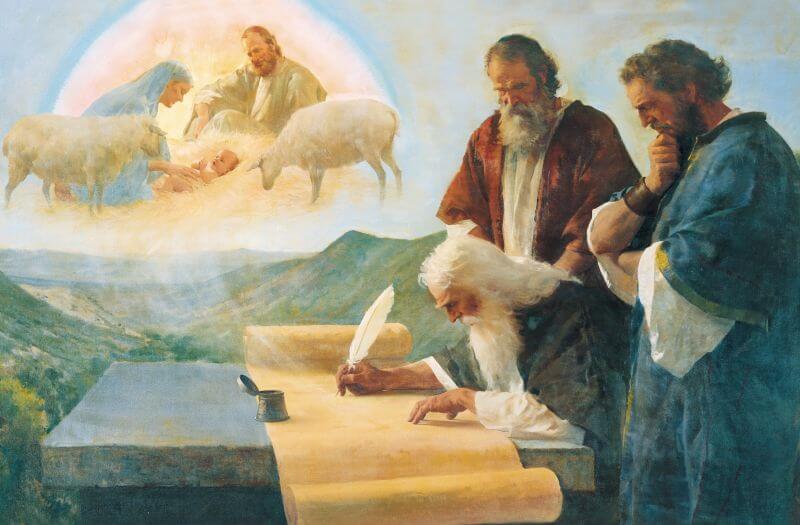Like others who search the scriptures, my soul delights in the words of Isaiah. Their many layers testify to man’s ever-expanding comprehension of God’s truth as he ventures into the spiritual realms Isaiah opens up that shape the geography of his prophetic wonderland. I love the excitement of every new discovery I make that forces me to completely readjust my previous conceptions of Isaiah’s words and reconcile my understanding to the newly revealed truth. I similarly love the checks and balances Isaiah’s words contain that compel me to verify every interpretation I arrive at by using simple methods of literary analysis.
I was on fire with this analytical mindset after arriving in America from Israel, where I had learned the “manner of the Jews”—the Jewish method of analyzing the scriptures—in a rabbinic school on Mount Zion, adjoining the Old City of Jerusalem. When I heard that Orson Hyde had dedicated the Land of Israel on the Mount of Olives for the return of the Jews on my birthday ninety-nine years earlier, it reinforced my connection to that Promised Land in which I spent five years working, studying, and gaining citizenship. Not long after I was baptized in the Pool of Siloam, I determined that God had an entirely new plan for me.
Entering academia and learning what it had to offer, I felt more than ever the affinity between the Jewish approach to analyzing the scriptures and God’s commandment to “search” them, not just to read or study them. Without a specific goal of figuring out what a scripture is actually saying, not what we want it to say, without seeing how it links up with others within the larger scriptural fabric, we are just scratching the surface and showing disrespect for God’s word. This pursuit of God’s truth is what motivates Jews to keep on analyzing the scriptures, to plumb their depths and take delight in their hidden treasures of knowledge.
When I reflect on the seven spiritual levels of humanity I discovered in the Book of Isaiah and that people and events of his day in Israel’s history form an allegory of an endtime scenario, I similarly take delight in the depth and genius of God’s word given through Isaiah. No one taught me those things. They sprang from a life that delighted in analyzing Isaiah’s literary features in spite of my being rejected by the larger body politic. As it still clung to centuries-old traditions that for the most part are grounded in “precepts of men,” I wasn’t loved by academia for exposing those things; and God required a price to be paid.
I delight in having discovered a literary structure in Isaiah 14 and 52–53 that portrays the king of Babylon as the antithesis of the King of Zion. It further shows that the suffering figure of Isaiah 53, who atones for humanity’s transgressions, is Israel’s God Jehovah. I delight in Isaiah’s “good news” that develops the concepts of salvation and exaltation within a larger construct that defines the interrelationship between suffering and salvation, humiliation and exaltation, ruin and rebirth, disinheritance and inheritance, etc. Most of all, I delight in Isaiah’s covenant theology, to which some give lip services but which few comprehend.













I so appreciate having my eyes and understanding opened to Isaiah. I find it thrilling and exciting to study with these new insights. Thank you so much Avraham Gileadi for sharing the fruits of your extensive labor with all of us.
Exceptional post but I was wondering if you could write a litte more on this subject? I’d be very thankful if you could elaborate a little bit more. Bless you!